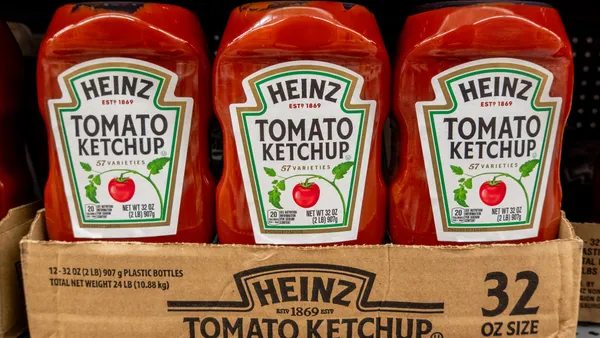Dive Summary:
- Facing reduced herds and high corn costs as a result of the recent drought, U.S. cattle feeders are increasing the use of growth-inducing drugs known as "beta-agonists" to get more beef from each animal.
- Beef producers and the drugs' creators insist that the additives are safe, but their use is a source of scrutiny, especially in Russia, the European Union, China and other countries that have banned them.
- U.S. consumer groups like the Center for Food Safety and the Animal Legal Defense Fund have also petitioned the FDA to conduct studies on the long-term effects of the drugs on animal health and people who consume beef from animals treated with them.
From the article:
... Statistics kept by the Agriculture Department prove what consumers are seeing: In 2000, the average fed carcass weight was 772 pounds. By 2011, with the use of beta-agonists picking up speed, weights had grown to an average 816 pounds. During the 2012 drought the average beef carcass weighed 835 pounds.
"Drought and tough times makes a producer use all technology that is available," CattleFax analyst Kevin Good said. ...












